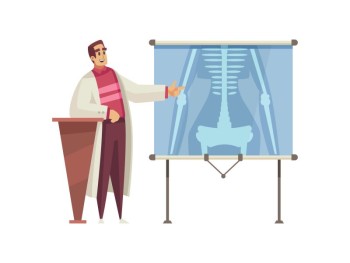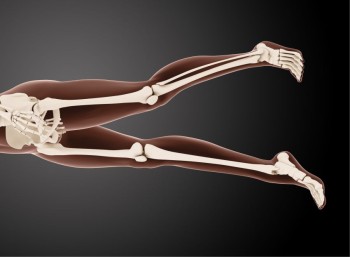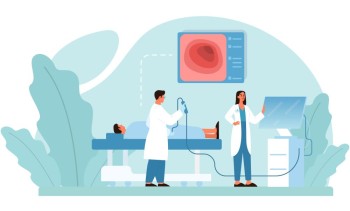
Barium-based diagnostic procedures, including Barium Swallow, Barium Enema, and Barium Meal Follow Through, play a crucial role in visualizing the gastrointestinal tract, aiding in the diagnosis of various digestive system conditions.
Barium Swallow, Barium Enema, and Barium Meal Follow Through with Cost
Barium Swallow, Barium Enema, and Barium Meal
Follow Through in Detail
Introduction
Barium-based diagnostic procedures, including Barium Swallow, Barium Enema, and Barium Meal Follow Through, play a crucial role in visualizing the gastrointestinal tract, aiding in the diagnosis of various digestive system conditions.
Barium Swallow
Barium Swallow, also known as an Upper Gastrointestinal Series (UGI), is a diagnostic procedure that involves the ingestion of barium sulfate contrast material. This helps highlight the upper gastrointestinal tract during X-ray imaging.
Purpose and Procedure
The primary purpose of Barium Swallow is to evaluate the structure and function of the esophagus, stomach, and the initial part of the small intestine. The patient drinks a barium solution, and X-ray images are taken as the contrast material travels through the digestive system.
Types of Barium Swallow
There are two main types: Single-Contrast Barium Swallow, which uses only barium, and Double-Contrast Barium Swallow, combining barium and gas to provide detailed images.
Indications, Contraindications, and Risks
Barium Swallow is indicated for various conditions such as gastroesophageal reflux disease (GERD), swallowing difficulties, and ulcers. Contraindications include allergies to barium or potential pregnancy. Risks are minimal, including constipation from barium ingestion.
Interpretation of Results and Comparison with Alternatives
Healthcare professionals interpret Barium Swallow results to identify abnormalities in the upper gastrointestinal tract. It is often compared with endoscopy for a comprehensive diagnosis.
Barium Enema
Barium Enema, or Lower Gastrointestinal Series (LGI), is a diagnostic test involving the introduction of barium sulfate contrast material into the colon and rectum for X-ray imaging.
Purpose and Procedure
The primary purpose is to assess the colon's structure and identify abnormalities such as polyps, tumors, or inflammatory conditions. Barium is introduced into the colon through a rectal tube, and X-ray images are taken.
Types of Barium Enema
Single-Contrast Barium Enema uses only barium, while Double-Contrast Barium Enema combines barium with air or carbon dioxide for enhanced imaging.
Indications, Contraindications, and Risks
Barium Enema is indicated for conditions like colorectal cancer and inflammatory bowel disease. Contraindications include severe colon inflammation or perforation risk. Risks are minimal, with some discomfort during the procedure.
Interpretation of Results and Comparison with Alternatives
Healthcare professionals interpret Barium Enema results to detect abnormalities in the colon. It is compared with colonoscopy for thorough colorectal assessment.
Barium Meal Follow Through
Barium Meal Follow Through is a diagnostic procedure that involves the ingestion of barium to visualize the entire small intestine and its interaction with the rest of the digestive system.
Purpose and Procedure
The primary purpose is to assess the small intestine for abnormalities such as obstructions or malabsorption issues. The patient drinks a barium solution, and X-ray images are taken at different intervals as the contrast material progresses through the digestive system.
Types of Barium Meal Follow Through
There are variations in the protocol, including Standard Barium Meal Follow Through and Modified Barium Meal Follow Through.
Indications, Contraindications, and Risks
Barium Meal Follow Through is indicated for small intestine assessments. Contraindications include allergies to barium or potential pregnancy. Risks are minimal, with the possibility of constipation.
Interpretation of Results and Comparison with Alternatives
Healthcare professionals interpret Barium Meal Follow Through results to identify small intestine abnormalities. It is compared with other imaging methods for a comprehensive evaluation.
Technological
Advancements in Barium Imaging
Recent advancements include digital imaging technology and improved contrast agents, enhancing the accuracy and efficiency of barium-based diagnostic procedures.
Common Misconceptions about Barium Imaging
Misconceptions, such as the perceived discomfort of the procedures, are addressed to ensure informed decision-making and alleviate patient concerns.
Future Trends and Developments
Emerging trends focus on enhancing diagnostic accuracy, reducing invasiveness, and improving patient comfort in gastrointestinal imaging.
Patient Experiences and Testimonials
Personal stories from individuals who have undergone barium-based imaging provide valuable insights into the real-world impact of these procedures on their diagnostic journey and subsequent treatment.
Conclusion
In conclusion, Barium Swallow, Barium Enema, and Barium Meal Follow Through stand as essential tools in gastrointestinal diagnostics. Their diverse applications, coupled with ongoing technological advancements, make them indispensable components of modern medical imaging.
FAQs (Frequently Asked Questions) about Barium Enema, Swallow and Meal Follow Through X-ray
Can Barium Swallow detect hiatal hernias?
Yes, Barium Swallow is effective in detecting hiatal hernias, providing visualization of the upper gastrointestinal structures.
Is Barium Enema painful?
Discomfort may be experienced during the introduction of barium, but the procedure is generally well-tolerated.
How long does a Barium Meal Follow Through procedure typically take?
The duration varies, but it usually lasts between 1 to 2 hours, including imaging intervals.
Can Barium Enema replace a colonoscopy for certain cases?
While Barium Enema provides valuable information, it may not fully replace a colonoscopy in all cases. The choice depends on specific diagnostic requirements and the patient's medical condition.
Are there dietary restrictions before undergoing Barium Meal Follow
Through?
Yes, specific dietary instructions are usually provided before the procedure to optimize imaging results.
Can Barium Swallow identify gastroesophageal reflux disease (GERD) in
children?
Yes, Barium Swallow is used in pediatric cases to assess GERD and other upper gastrointestinal issues in children.
Is Barium Enema suitable for individuals with a history of
diverticulitis?
Barium Enema may be appropriate for individuals with a history of diverticulitis, and healthcare providers will consider the patient's medical history when recommending the procedure.
What are the potential side effects of drinking the barium solution
during Barium Meal Follow Through?
Common side effects may include temporary constipation or a chalky taste. Usually, these symptoms are mild and of short duration.
Can Barium Swallow detect esophageal strictures or narrowing?
Yes, Barium Swallow is effective in detecting esophageal strictures or narrowing, providing valuable information about the condition of the esophagus.
Is it safe to undergo Barium Enema during pregnancy?
Barium Enema is generally avoided during pregnancy unless absolutely necessary, to minimize fetal exposure to radiation. Pregnant individuals should inform their healthcare provider about their pregnancy before the procedure.
(0)
Login to continue



